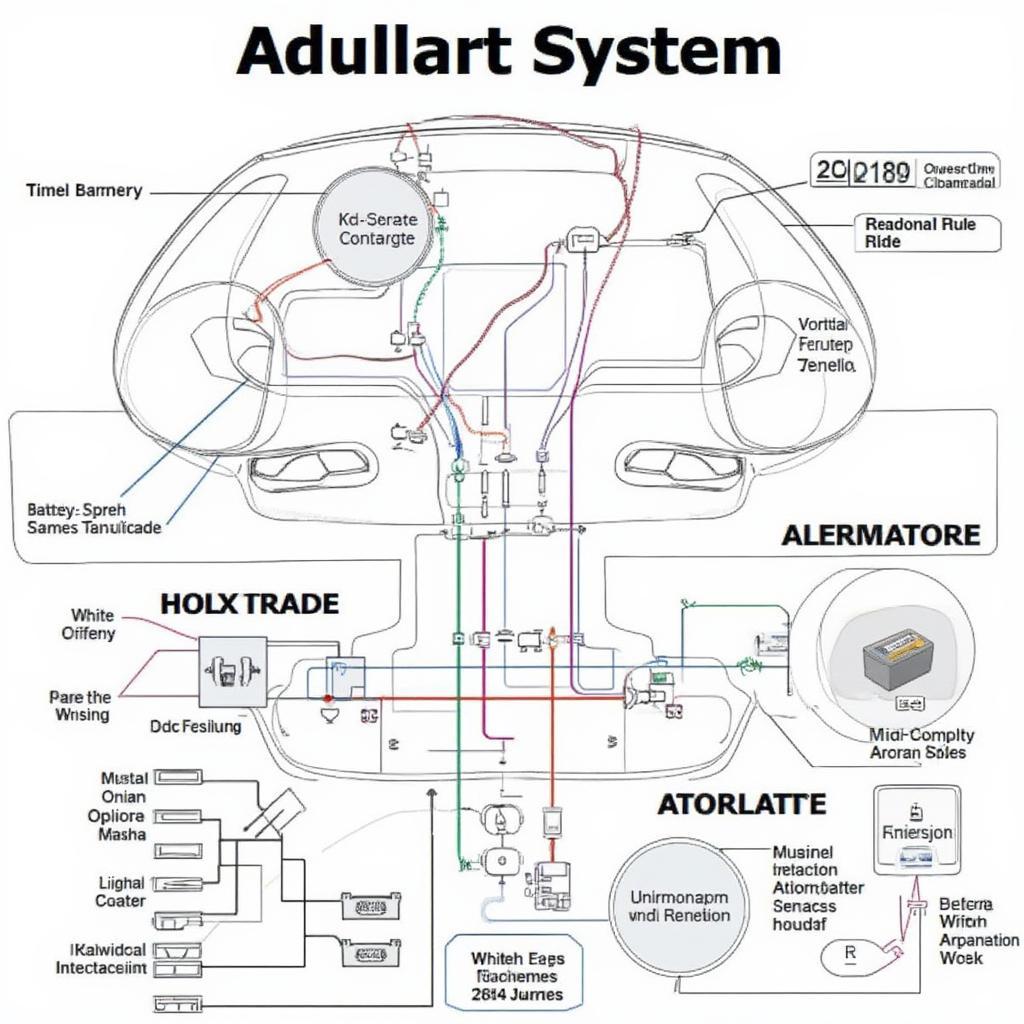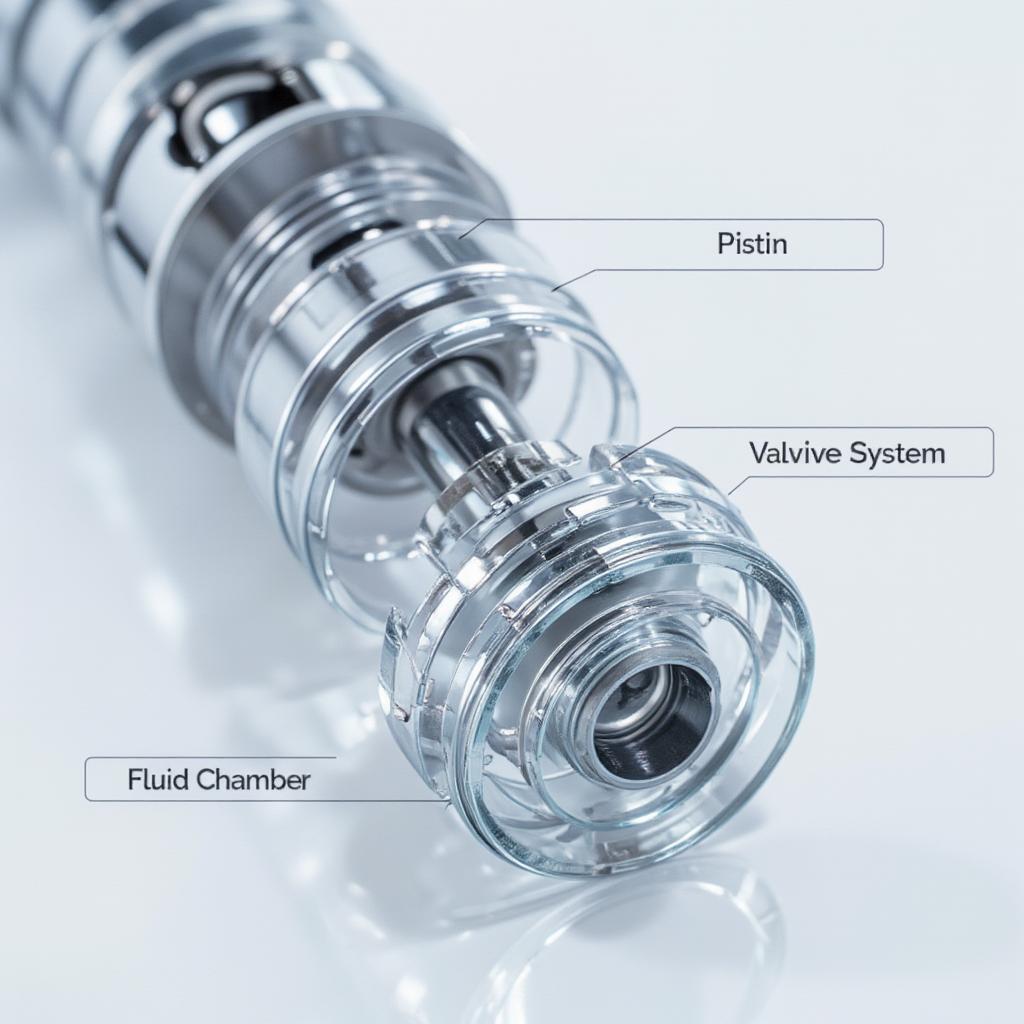Mastering Automotive Electrical Classes: A Comprehensive Guide

Automotive electrical systems are becoming increasingly complex, demanding a skilled workforce capable of diagnosing and repairing intricate electrical issues. This guide explores the essential aspects of Automotive Electrical Classes, providing valuable insights for aspiring automotive technicians.

Understanding the Importance of Automotive Electrical Classes
Today’s vehicles rely heavily on sophisticated electronic control units (ECUs), sensors, and actuators. These components manage everything from engine performance and fuel efficiency to safety features like anti-lock brakes and airbags. A deep understanding of these systems is crucial for anyone pursuing a career in automotive repair. For individuals interested in gaining practical skills, consider exploring options like learning automotive mechanics.
Core Curriculum of Automotive Electrical Classes
Automotive electrical classes typically cover a wide range of topics, starting with fundamental electrical principles like Ohm’s Law, voltage, current, and resistance. Students learn about circuit analysis, wiring diagrams, and the use of diagnostic tools like multimeters and oscilloscopes.
- Basic Electricity: Foundational concepts such as voltage, current, resistance, and Ohm’s law.
- Circuit Analysis: Understanding series, parallel, and series-parallel circuits.
- Wiring Diagrams: Interpreting and using wiring diagrams to troubleshoot electrical faults.
- Electronic Components: Identifying and testing various electronic components like diodes, transistors, and integrated circuits.
- Sensors and Actuators: Learning how sensors gather data and actuators perform actions based on ECU commands.
- Diagnostic Tools: Mastering the use of multimeters, oscilloscopes, and scan tools for troubleshooting.
Advanced Topics in Automotive Electrical Training
As students progress, they delve into more advanced topics such as:
- Battery Systems: In-depth knowledge of battery types, charging systems, and battery testing procedures.
- Starting and Charging Systems: Understanding the operation and diagnosis of starters, alternators, and voltage regulators.
- Lighting Systems: Troubleshooting headlight, taillight, and interior lighting circuits.
- Electronic Control Units (ECUs): Understanding the role of ECUs in controlling various vehicle functions.
- Network Communication: Learning about communication protocols like CAN bus (Controller Area Network), used for data exchange between ECUs.
“Understanding network communication is paramount in modern vehicle diagnostics. Without a solid grasp of how ECUs communicate, technicians are at a significant disadvantage,” says Dr. Eleanor Vance, a leading automotive electrical engineer.
Hands-on Experience in Automotive Electrical Classes
Practical experience is a cornerstone of effective automotive electrical training. Students gain hands-on experience through lab exercises, simulations, and work on actual vehicles. They learn to diagnose and repair common electrical faults, such as:
- Short Circuits: Identifying and repairing short circuits that can cause blown fuses or damage to components.
- Open Circuits: Troubleshooting open circuits that interrupt the flow of current.
- Ground Problems: Diagnosing and fixing grounding issues that can lead to various electrical malfunctions.
- Sensor Failures: Testing and replacing faulty sensors that provide inaccurate data to the ECU. For those looking to enhance their skills on weekends, consider enrolling in weekend mechanic classes.
Choosing the Right Automotive Electrical Class
When selecting an automotive electrical class, consider the following factors:
- Accreditation: Ensure the program is accredited by a reputable organization.
- Curriculum: Verify the curriculum covers the topics relevant to your career goals.
- Instructors: Look for experienced instructors with a strong background in automotive electrical systems. Consider researching options for basic automotive maintenance classes to build a strong foundation.
- Facilities: Ensure the program has well-equipped labs and access to modern diagnostic tools. If you’re seeking local options for evening learning, search for automotive night classes near me.
“Hands-on training is invaluable. The more time you spend working on real-world problems, the better prepared you’ll be for a successful career,” advises Michael Reyes, a master automotive technician with over 20 years of experience.
Conclusion
Automotive electrical classes provide the foundation for a successful career in the rapidly evolving automotive industry. By mastering the intricacies of electrical systems, aspiring technicians can position themselves for rewarding opportunities in this dynamic field. A thorough understanding of automotive electrical systems is essential for diagnosing and repairing the increasingly complex vehicles of today and tomorrow.




